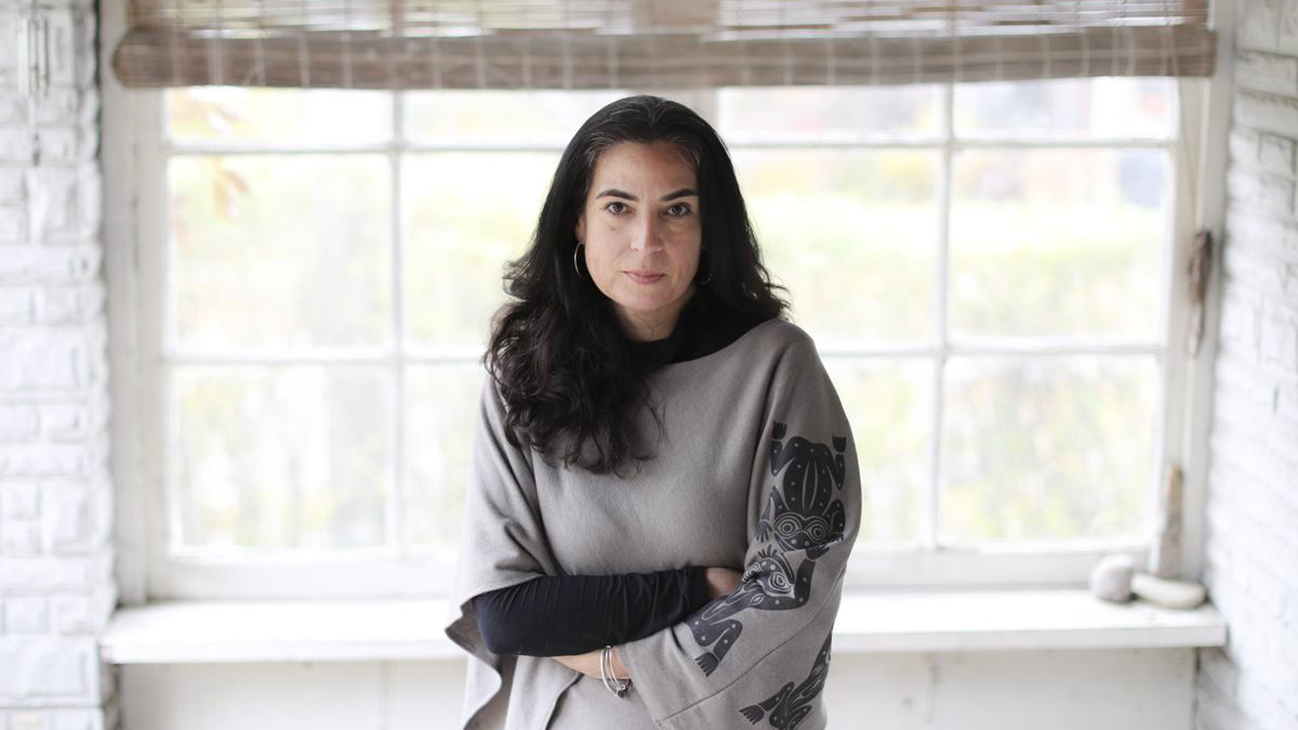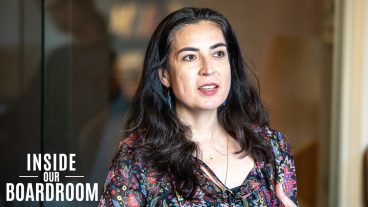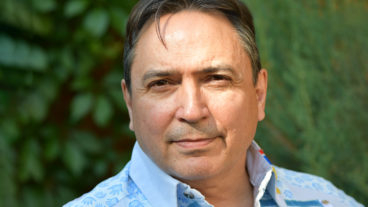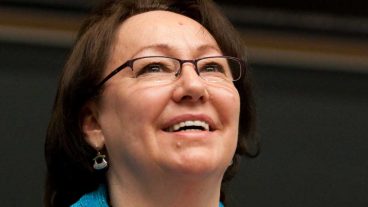September 30, 2021 marks Canada’s first National Day for Truth and Reconciliation to honour the lost children and survivors of residential schools, their families, and their communities.
In a recent piece for the Globe and Mail, award-winning journalist and author Tanya Talaga reflected on what this day represents for the Indigenous community and all of Canada, and her hope of what our country could be.
Tanya attended the Wake the Giant music festival last week in Thunder Bay, first organized in 2019 by Dennis Franklin Cromarty (DFC) High School as a proactive attempt at hope and change in a city of deep racial divisions, she writes. DFC was attended by six of the Seven Fallen Feathers — the seven indigenous youth who died under mysterious circumstances in Thunder Bay between 2000 and 2011.
Tanya writes:
Anishinaabe kwe jingle dress dancers worked their way into a crowd of nearly 3,000 music fans and tried to form a giant circle. Most of the dancers were from Dennis Franklin Cromarty (DFC) High School, an institution for Indigenous students located in Thunder Bay that is administered by the Northern Nishnawbe Education Council and serves 20 communities in northwestern Ontario.
Protected and led into the fray by their teachers, they moved in perfect rhythm to the drums on stage, where Grammy award-winning musicians Northern Cree played in unison with Six Nations electronic pow-wow guru DJ Shub. The crowd was thick and bopping, but it parted to let the traditionally dressed dancers pass – their silver jingles chiming loudly together to the beat.
Then, magic: Concertgoers joined them in the round dance, a traditional show of unity and friendship…
For a brief moment, the round dance exemplified what Thunder Bay and the rest of Canada could become: a country bound by energetic love and promise, brought together by music.
Following this hopeful reflection, Tanya urged all Canadians to honour the day: “Put on an orange T-shirt to honour the survivors of those 139 so-called schools,” she writes. “Think about how Canada can bring about change. Reflect on how to bring loving homes free of mould and with clean water and full fridges to all First Nations communities that need them. Or high schools, for that matter.”
However, as a federal statutory holiday, provinces and territories can choose how they observe it and whether or not it will be a paid day off, with many choosing to see September 30 as business as usual. This left Tanya wondering why all of Canada can’t “join together to create a day of true and honest national reflection, thought and remembrance.”
With the last residential school closing in 1996, Tanya writes, there are many survivors who are in the workforce and who may have no choice but to work. This means that the very community this day is meant to honour may not have the chance to properly commemorate the day.
Below is a segment of Tanya’s piece as she explores why all Canadians, no matter the province or territory they live in, should be able to honour the day without financial consequences. Read her whole piece here.
This country’s genocidal policies led to the deaths of at least 6,000 children at Indian residential schools. Only now, as thousands of our children wait to be recovered and brought home, is Canada truly beginning to acknowledge the scope of what has happened here.
…
But we are only sort of recognizing the National Day for Truth and Reconciliation, because it’s up to each provincial and territorial government, as well as individual businesses, to decide whether it will be an actual paid day off. Manitoba, Nova Scotia and Prince Edward Island are the only provinces recognizing the holiday, closing schools and government offices; certain municipalities around the country are taking the day off, too. But according to provincial governments in populous Ontario, Quebec and British Columbia, Sept. 30 will effectively be business as usual.
The only citizens who will definitely have the day off work are federal civil servants, including bureaucrats at Crown-Indigenous Relations and Northern Affairs Canada and Indigenous Services Canada, who keep the racist Indian Act rolling. Meanwhile, actual residential school survivors, depending on where they live, might be forced to work. By way of reminder, the last school closed in 1996 – meaning that there are survivors out there who are riding the bus and sitting in offices, grinding the days away.
NDP MPP Sol Mamakwa, the only member of Ontario’s provincial legislature who attended a residential school, is a case in point. He represents the riding of Kiiwetinoong in northwestern Ontario, which is home to many communities with boil-water advisories; most First Nations here send their children to Thunder Bay and Sioux Lookout for high school because there are no schools in their home communities.
On Sept. 14, Mr. Mamakwa held a press conference, calling for a thoughtful day of reflection on Sept. 30. It fell on deaf ears. There has been no word of acknowledgement from Premier Doug Ford’s office.
Mr. Mamakwa knows that walking away from our past is no answer. That is an old way of thinking – one that politicians have spent generations hiding behind.
“We must act together to not repeat the past,” he told me in an interview. “I hope that this day can be one of education and thought across Canada, so we can walk together toward a better future.”
I hope so, too…
The award-winning author of the national bestseller Seven Fallen Feathers, Tanya Talaga is an acclaimed storyteller. In her powerful keynotes, she shares Indigenous stories from across Canada and the world, humanizing the legacy of residential schools and colonization and sharing her hope for a more inclusive and equitable future.




